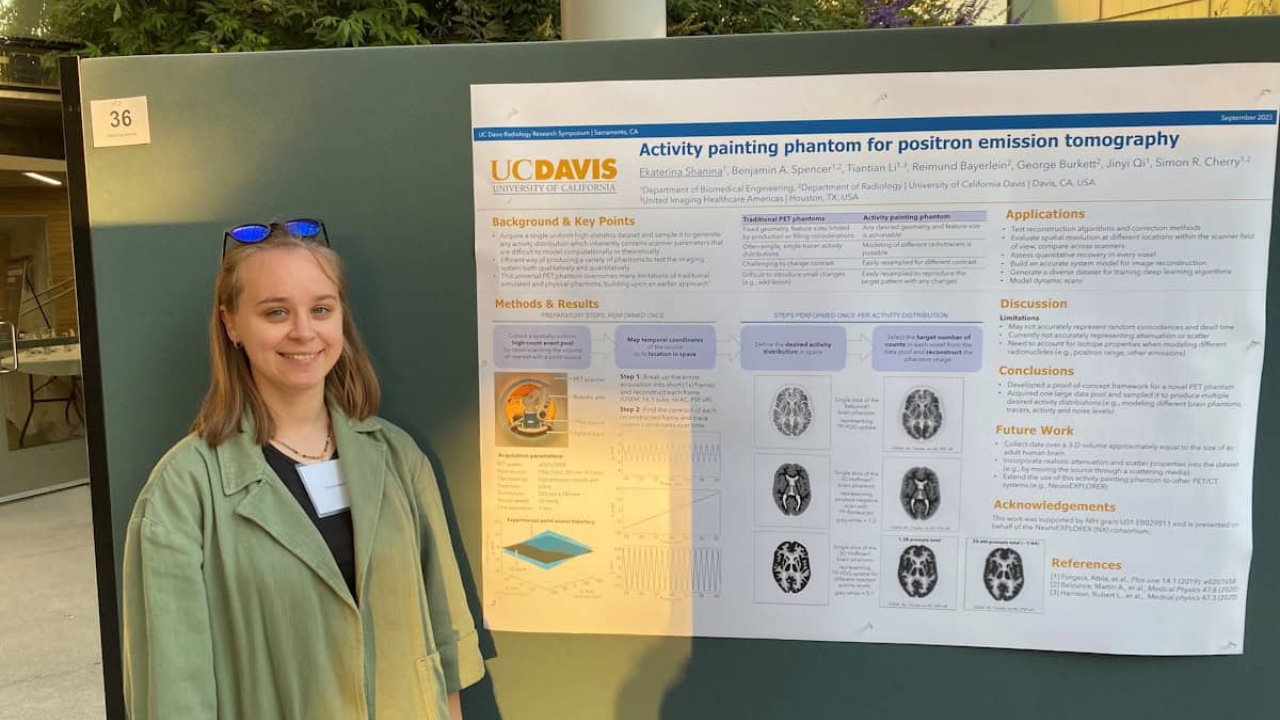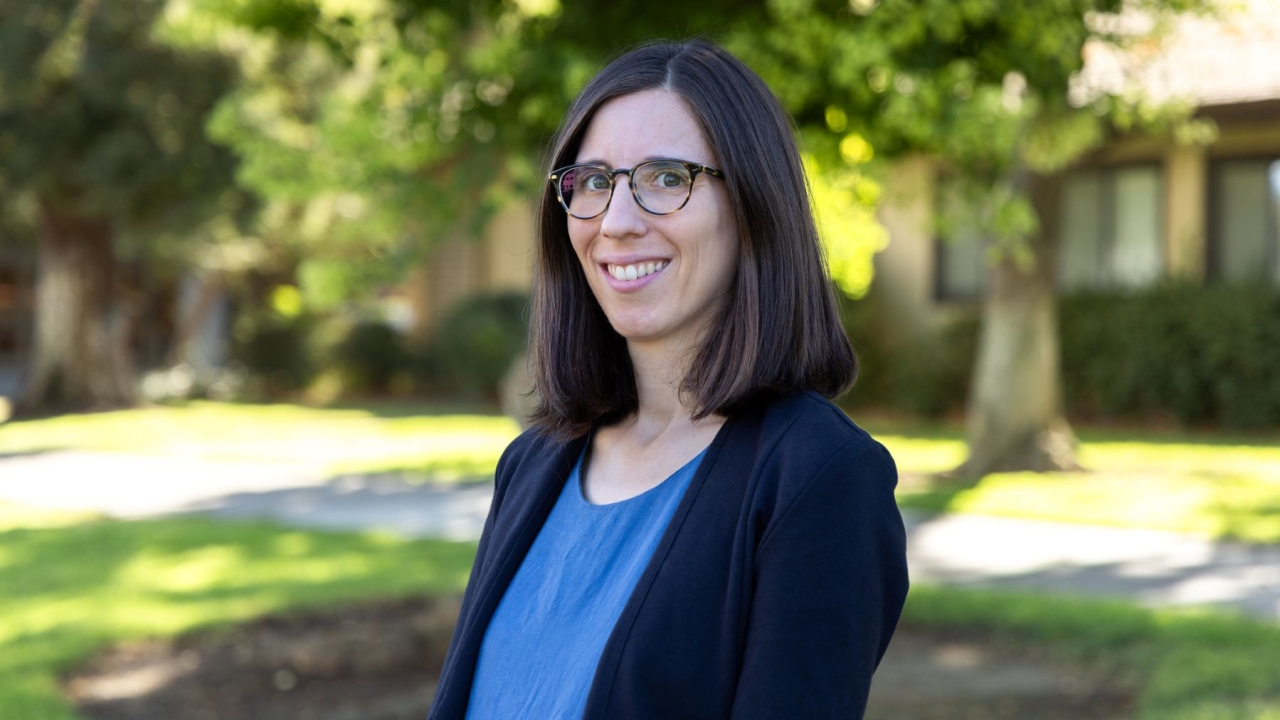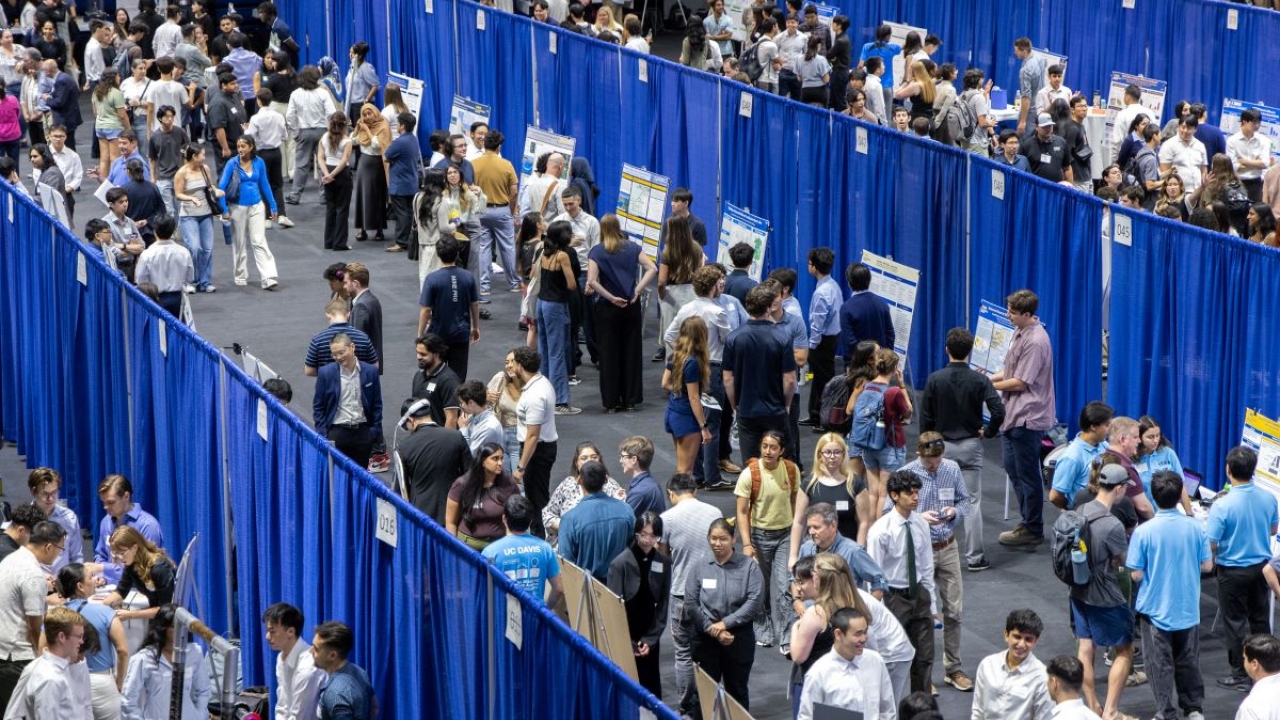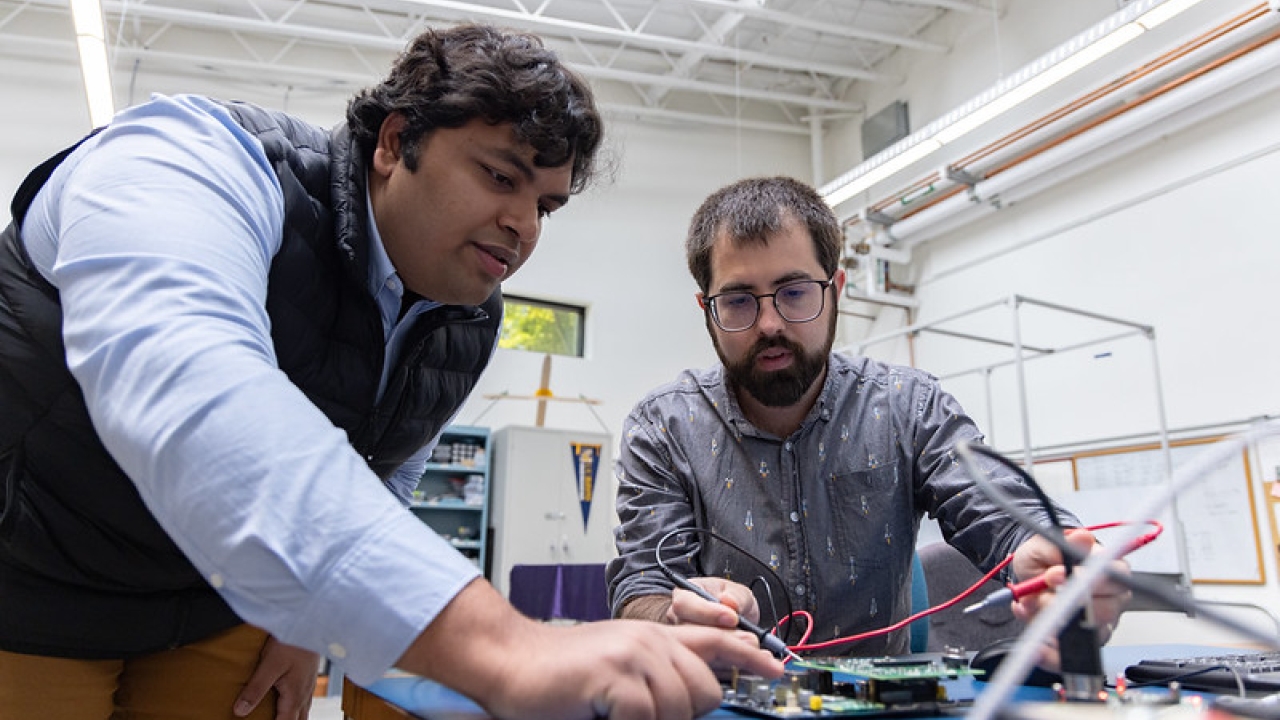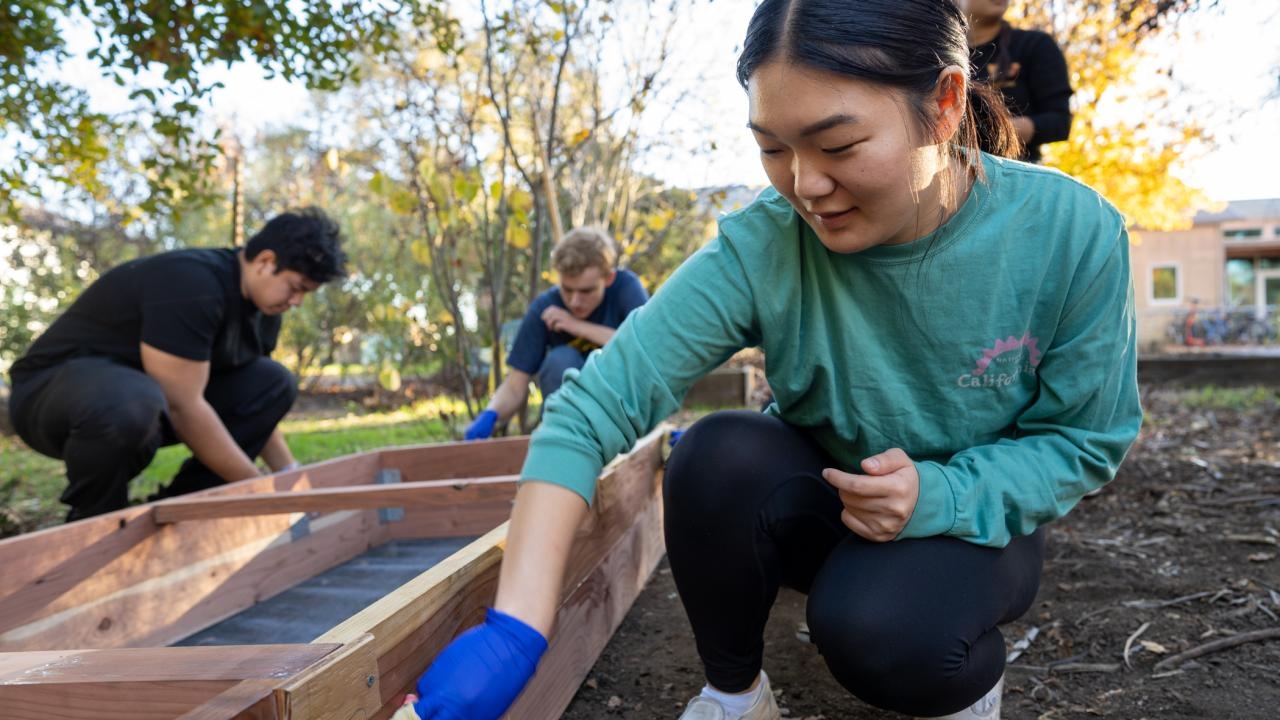
Engineering Change
New Course Blends Technical Skills with Community Impact
On a crisp fall day, the UC Davis Student Farm buzzed with energy as engineering students worked diligently under the bright sun. With shovels and paintbrushes in hand, they dug a trench, assembled wooden frames and brought their design to life.
Their project, a teaching-focused worm composter, was the culmination of an innovative course designed to reimagine civil engineering education. “As engineers, we possess a unique opportunity to connect with our communities, but engagement is often overlooked in undergraduate classes," said co-instructor Alyson Kim, a doctoral candidate in civil engineering working with Associate Professor Sabbie Miller. Kim hopes to cultivate engineers who are as proficient in public engagement and sustainability as they are in design and construction. “I wanted to provide a broader perspective,” she said.
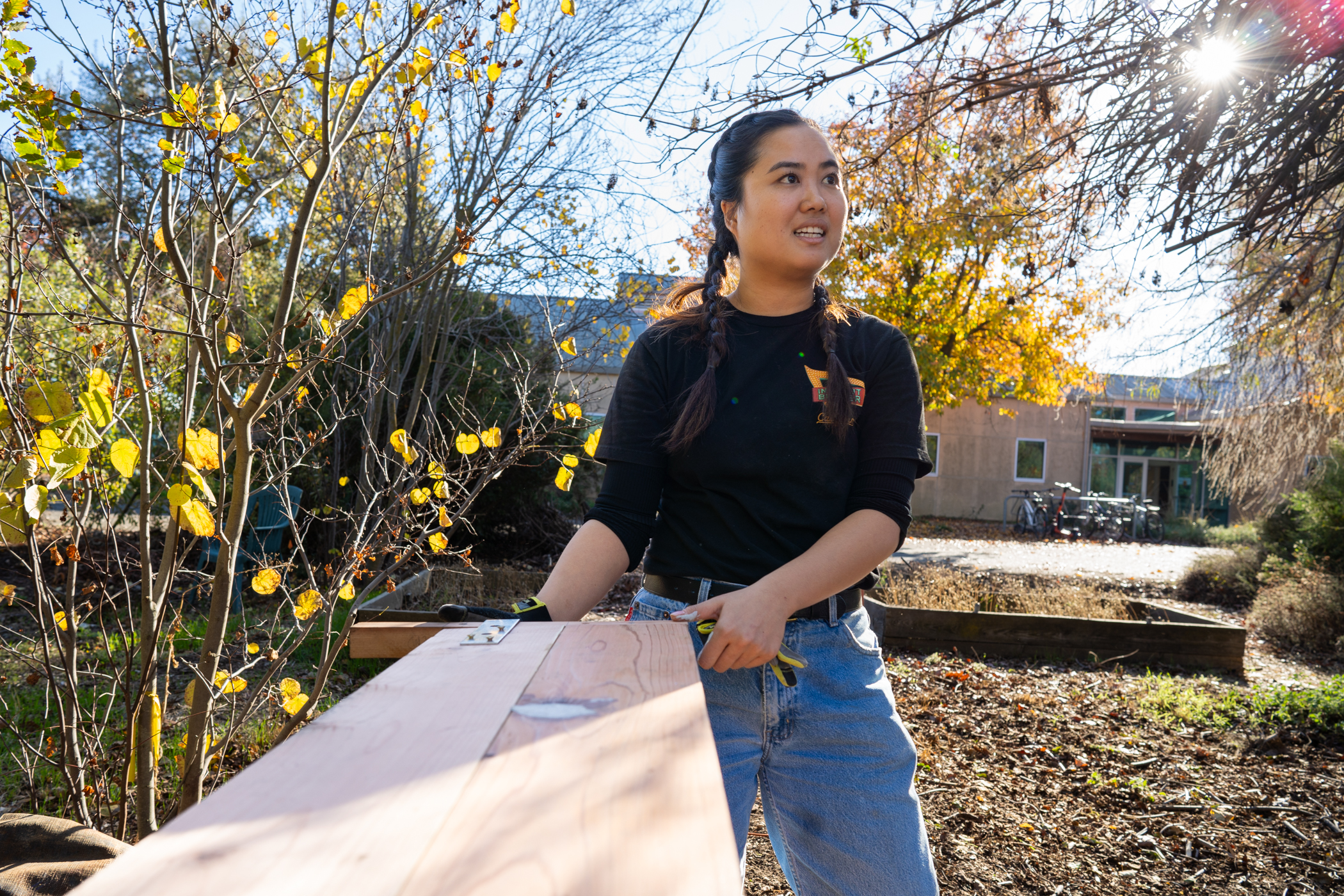
Hands-On Learning
Professional civil engineers work on projects that matter to millions of people, such as bridges, roads, dams and water treatment. Kim's approach can help prepare students to step into roles that have a significant public impact.
“I thought it was cool to see how I could apply my technical knowledge to helping out a specific community, and how to ask the community what their needs are and then design something to fit those needs,” said Kinsey Kwan-Liu, a third-year engineering major.
The heart of Kim’s class (ECI 189C) is a collaborative project with a local partner. For the inaugural run, 10 students constructed a worm composter for the Student Farm. This challenge was steeped in the ethos of the course. "The worm bin is a conversation starter for a lot of the big ideas we’re thinking about these days — reducing food waste, addressing food justice, reducing our climate impact and carefully stewarding resources we use on farms, like nitrogen and phosphorus," said Julia Schreiber, ecological garden coordinator at the Student Farm.
Divided into teams, the students drew up competing designs, then deliberated the costs and benefits before settling on a single plan. They worked closely with Schreiber and Kim to ensure the design was functional, accessible and met educational goals for farm visitors of all ages. “This has been my favorite class at UC Davis,” said Maya Ramirez, a fifth-year civil engineering major who plans to pursue construction management as a career. “Trying to bridge the connections between the designs was interesting and aligns with what I will be doing in construction management.”
The composter was built in the Diane Bryant Engineering Student Design Center, where students learned woodworking skills, then assembled at the Student Farm. “Getting to actually touch the materials, and to understand how people will engage with our design, was really different from learning about engineering design in a classroom,” said Emily Vu, a third-year civil engineering major.
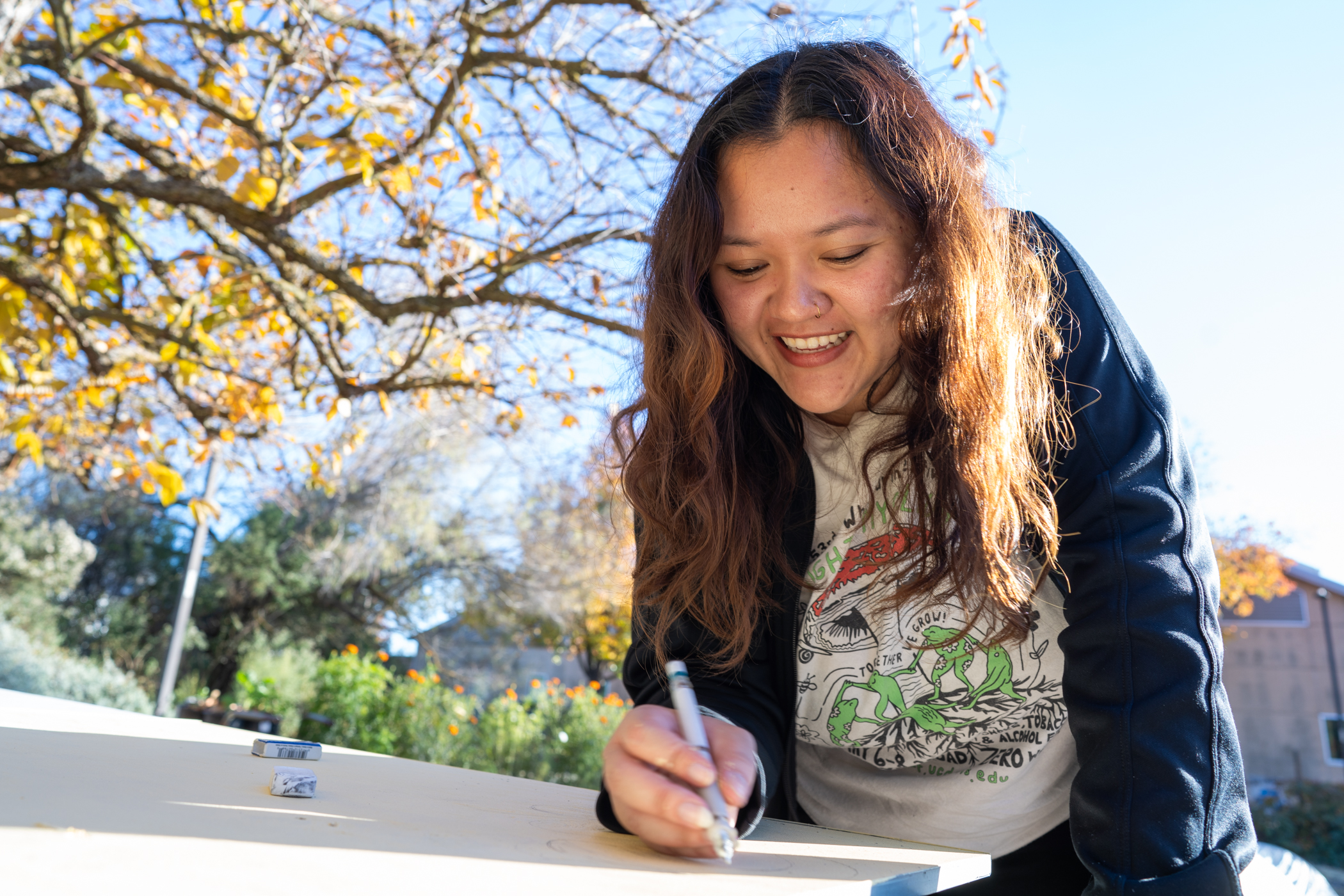
Supporting Innovative Partnerships
Like her students, Kim was drawn to engineering because it’s about solving problems. As an undergraduate at UCLA, she conducted research on sustainable infrastructure, and worked on clean water systems as a member of Engineers Without Borders. However, Kim found herself yearning for more hands-on classroom learning. “I remember always being really jealous of the mechanical engineering students or the electrical engineering students who got to build robotics or circuit boards,” she said.
As a graduate student, Kim found herself in a position to address this gap. Her vision took concrete shape during a Public Scholars for the Future (PSF) fellowship. This program, under the UC Davis Office of Public Scholarship and Engagement, offered Kim the tools to meld community engagement with academic research. “The PSF program played a pivotal role in this class, from establishing connections with our community partner to my own personal growth as an educator," Kim said.
Looking ahead, Kim and Miller are strategizing to sustain and expand the course’s reach. Kim is also planning to publish research assessing the course's impact on students. She said community service is a key factor in attracting women to engineering, and hopes the course will inspire and motivate young women to pursue their engineering aspirations.
The impact of Kim's approach is already evident through the experiences of her students, such as Emily Vu. “This class is about genuine learning and effective collaboration. It's about making a tangible impact on the future. The hands-on experience is invaluable," Vu said.

